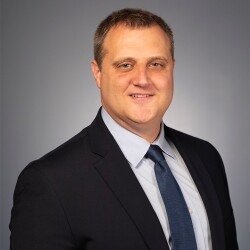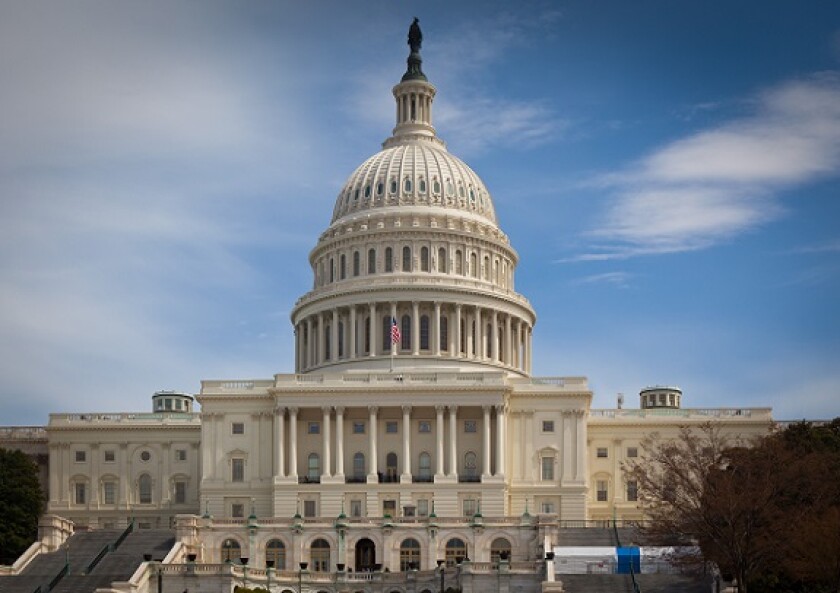GlobalCapital: The SFA will have been tackling a number of different industry issues this year, but what have been some of the key issues influencing and impacting the US structured finance market?
Bright: One of the main issues for the industry, and for us at the SFA, has been the work involved in getting a bill through Congress that provides a safe harbour for legacy structured finance contracts which don't have adequate fallback language (in terms of what rates can move to on the contract in the event that there is no Libor). This has been a Herculean effort to craft legislation that essentially ensures that consumers can be smoothly transitioned away from Libor if they are on contracts without fallback language.
This work involved working closely with the US Federal Reserve to draft the bill, which the House Committee for Financial Services passed earlier this year by unanimous vote. That was a good win, but the bill still needs to be passed by the House of Representatives, and the Senate, before it arrives on the President’s desk. So, there is a way to go yet but we are making good progress.
Together with this, the industry has been very focused on dealing with the economic repercussions of Covid-19, specifically forbearance plans and how that’s impacted mortgage securitizations, as well as progressing work on the standardization of disclosures around ESG and sustainable investments.
This has been a Herculean effort to craft legislation that essentially ensures that consumers can be smoothly transitioned away from Libor if they are on contracts without fallback language

From our perspective, the securitization market is faced with an opportunity and a challenge to come together to build some industry best practices for disclosures and minimum structural levels across all the ESG categories. On our side, we’ve actually convened a taskforce to investigate and report on what type of information investors need to be able to credibly say that a particular securitization investment is a sustainable investment.
GlobalCapital: The cessation of Libor next year is profoundly important issue for the global finance industry. In your view, how prepared is the structured finance industry for this event?
Bright: A monumental amount of work has gone into preparing for this transition. So, the whole of the finance industry has prepared for this as much as it can, where it can. But on an issue such as legacy contracts that don’t have the fallback language – and we estimate there are between $10-15 trillion of contracts that don’t have that language – there is only so much you can do to prepare for that. This certainly puts the trustees in a very difficult position where they're meant to manage the deal without clarity on what rate is meant to be used. And this requires Congress’ involvement. On our side, we have done what we can with a comprehensive campaign to elevate this issue and make the progress we have.
GlobalCapital: Green and sustainable finance and investment has become of the most important areas of global finance. How do you assess the structured finance industry’s embrace of green and sustainability issues?
Bright: There is certainly positive energy behind it, which is coming from investors, issuers and rating agencies. They are all building tools to evaluate the sustainability of structured finance transactions. At the moment, however, I think the industry lacks good, credible data and baseline standards which all participants can agree on. This is a work in progress. Where the industry needs to be particularly careful is – and there is a lot of upside of working together, collaboratively – guarding against greenwashing. Success here is critical in order for consumers to have the trust and faith they need to invest in ESG-related products. One important way we contribute to that is through the convening power we have in gathering everybody together to share their views and perspectives on best practices and data. This ultimately helps enable the industry to engage in some self-policing to ensure claims of investments being sustainable are backed-up with hard evidence.
GlobalCapital: Looking ahead into 2022, what are some of the key macro-risks you see?
Bright: We would all like to get Covid under control. There is the risk of another evolution of the virus that causes our economy, and economies, to shut down again, which is an outcome no one wants to see. I think there is also inflation risk, too, as we work to rebuild the economy and invest substantially in infrastructure. On mortgages specifically, what gets a legal safe harbour from the ability-to-repay requirements under Dodd-Frank is both a risk and opportunity to the industry. The CFPB, for example, probably does not want the safe harbour to be as large as that under the prior administration, which may open up some litigation risk.


